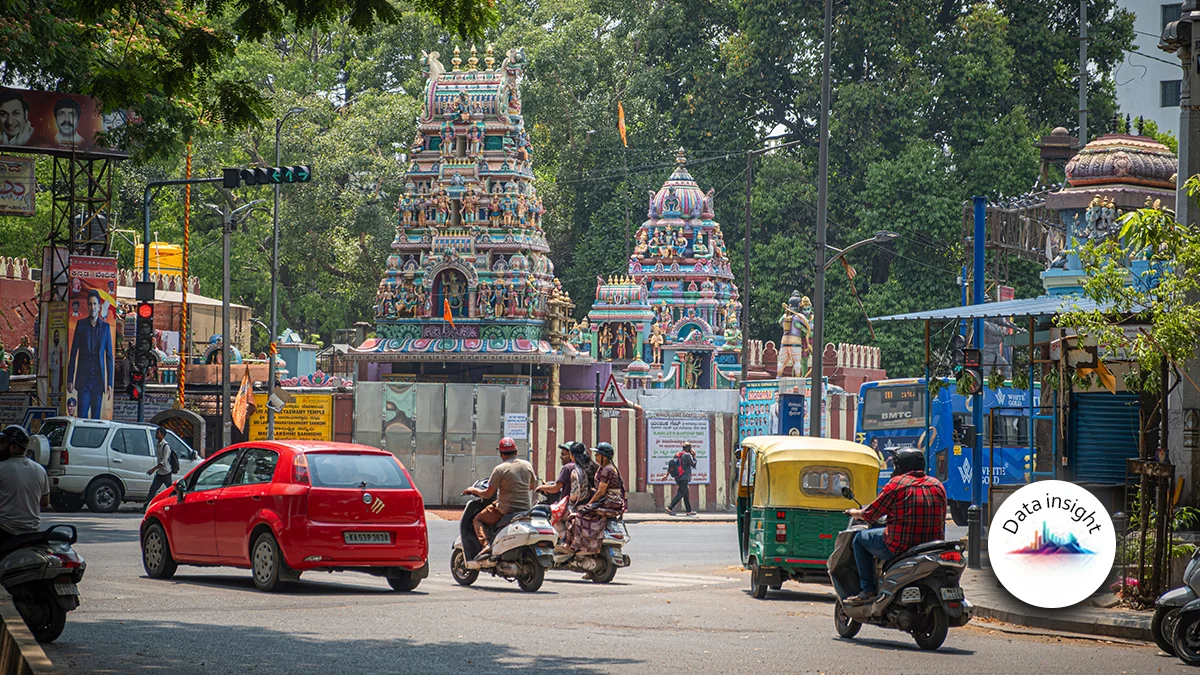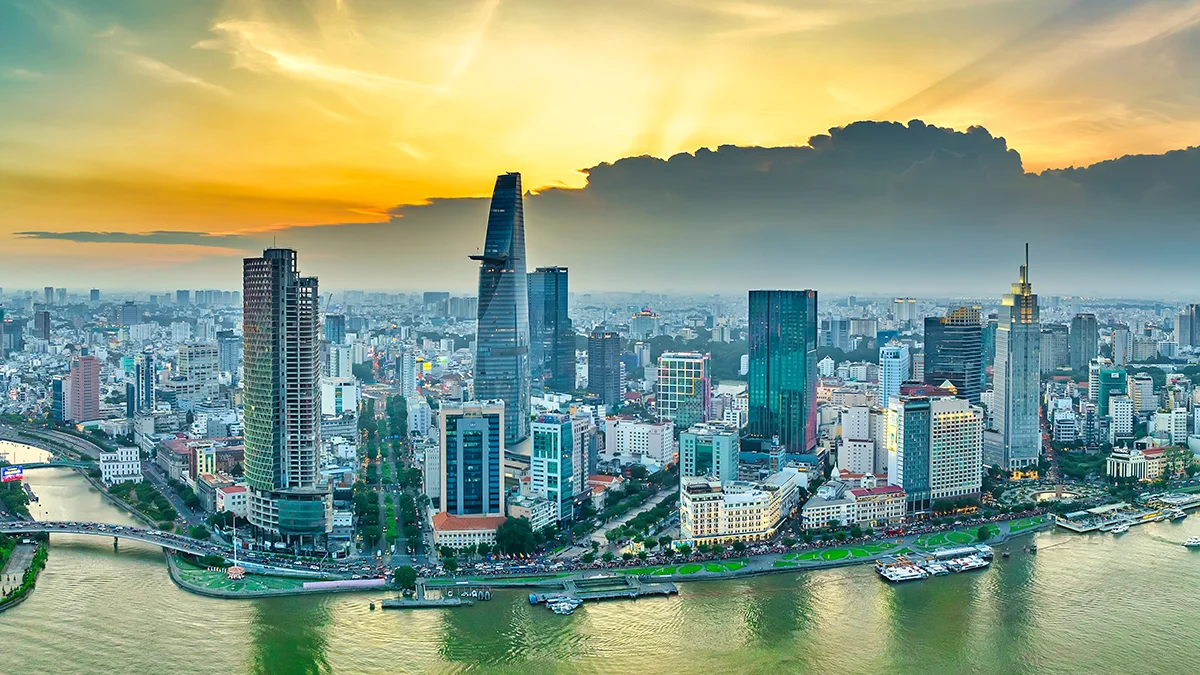(Re)in Summary
• India has 21 P&C, life and health insurance JVs involving foreign partners which hold ownership stakes ranging from 9.9% to the 74% current cap.
• India proposed changes in November to insurance FDI rules that would allow foreign firms to take 100% control of their JVs.
• A number of firms raised their ownership stakes when the cap was previously increased to 74% in 2021.
• Not all JVs will change structure, with a local partner still attractive to global players, – particularly those in bancassurance.
Power, as the Pirelli slogan goes, is nothing without control, and the Indian government’s November move to lift the foreign direct investment (FDI) cap from its 74% limit offers foreign players operating insurance JVs in India the chance to exert full authority over their local operations.
But will they take it?
Ashwin Sundar, Managing Partner in Gallagher’s India business is confident there will be widespread enthusiasm from foreign JV partners to take total control of their businesses, particularly given how many increased their holdings when Indian authorities increased the cap from 49% to 74% in 2021.
“Once the FDI rule change goes through then the current crop of JVs will undergo a change, and I understand that most of the large ones are looking into this.
When the cap was increased from 49% to 74% in 2021, all the major entities immediately moved up to the maximum level, and they will probably go to the 100% mark with this latest change,” Sundar says.
The three decade process of liberalising India’s FDI rules finally reached the insurance sector in November, and is the result of Prime Minister Modi’s economic development plan Viksit Bharat (Developed India) by 2047, interlocking with its related ‘Insurance for All’ by 2047’ ambitions.

Ashwin Sundar
Managing Partner at Gallagher IndiaManagement restrictions
Akil Hirani, Managing Partner at law firm Majmudar & Partners says that as a result foreign JVs partners now have the opportunity to escape the restrictions which apply to their business, even with a majority 74% stake.
“Even when the FDI limit was raised to 74% the regulator still imposed restrictions in terms of board control and CEO appointment. Although the foreign partner has majority ownership, it is still a little shackled in terms of controlling the day-to-day operations of the company,” The Mumbai-based Hirani says.

Akil Hirani
Managing Partner at Majmudar & PartnersHirani says that foreign insurers’ JV partners have typically been sanguine over restrictions, such as the CEO needing to be a person of Indian origin who is appointed by the Indian partner, given the market’s growth potential.
But ideally they would prefer to see these disappear.
“Once the 100% FDI rule comes in, the JV management restrictions will be lifted. From the perspective of foreign JV partners, having this sole control will be a significant advantage when doing future business,” Hirani says.
Higher margins
According to Gallagher’s Sundar, the benefits of 100% ownership extend beyond greater freedom with management appointments and should also result in improved business margins.
“Margins will definitely improve with 100% control. You have to factor in the correct income share for your JV partner when calculating treaty negotiations figures.
This number will improve as a 100% owned subsidiary, because the foreign firm will control the entire P&L,” he says.
The Insurance Amendment Act 2024, which includes the FDI proposal, also has a number of other changes, such as provisions to reduce capital levels, composite licences, the issuance of captives licences, and reforms to the agent model.
Ashwin Sundar
Managing Partner at Gallagher IndiaSundar says that the combination of measures makes taking sole control of JV even more attractive to foreign insurers.
“Firms will conduct their due diligence before coming to a decision over taking sole control of the JV, but there are a lot of positive business considerations for moving in this direction,” he says.
David Schwintowski, Singapore-based Counsel at law firm Freshfields, which advised Zurich Insurance on its US$488m acquisition of a controlling stake in India’s Kotak General Insurance in November 2023, points to the strategic advantages of taking sole control.
“An international investor needs to plan their strategy on a time horizon basis, and an FDI cap means you won’t be able to divest as easily as if you had complete control.
Not holding the remaining 26% under the current India FDI regime put a natural barrier around corporate strategy that isn’t found in developed markets without an FDI cap,” Schwintowski says.

David Schwintowski
Legal Counsel at FreshfieldsJon Bowden, Singapore-based Partner who is also at law firm Freshfields, says that typically global insurance groups prefer to have total control of their operations.
“Holding a significant majority in a JV is absolutely critical from a governance, and capital adequacy, standpoint. In our experience big insurers like to control their JVs and are willing to pay a premium to do so.
This is particularly true in markets where historically, perhaps, there’s been a perception of some compliance risk, but also where there’s an enormous business opportunity,” Bowden says.
“I would say lifting the 74% cap would have a significant impact on international investors, willingness, and maybe even ability to invest,” he adds.

Jon Bowden
Partner at FreshfieldsLocal knowledge
Despite this positive view of the FDI rule change Bowden says that he doesn’t expect every single current JV to convert to full control and that in a market as vast, complex, and idiosyncratic as India’s there are advantages to retaining access to a local partner.
“Even if firms are entitled to go to 100%, we may continue to see investors actually come in and perhaps take 75-80% in a JV structure to start with,” Bowden says.

Giulio Terzariol
Insurance CEO at GeneraliThis equivocal approach to taking 100% control of a JV was backed by Giulio Terzariol, CEO of Generali’s insurance division. The Italian financial services firms has two Indian JVs – Future Generali India Life Insurance, and P&C outfit Future Generali India Insurance Company.
Despite Generali’s Indian experience being clouded by the 2022 insolvency of its JV partner, conglomerate Future Group, Terzariol tells (Re)in Asia that he isn’t rushing to make conclusions over the benefits of the proposed FDI rule changes.
“First of all, let’s see whether the rules are actually changing. There are advantages to having a 100% ownership of a company, while on the other side it can be helpful to have a low cost, strong partner in business with you.
We will consider what to do, if and when the rules change, but there isn’t a preconceived notion that one model is better than the other,” Terzariol says.
India’s buying power
It’s not just the potential benefits from taking full control of a JV that are being questioned by Indian insurance practitioners with Majmudar & Partners’ Hirani voicing caution over how big the Indian insurance opportunity is for global players.
Analysts are bullish over the Indian insurance market – Swiss Re published a report at the start of 2024 predicting it will grow by 7.1% in real terms between 2024 and 2028 – nearly three times the global average of 5.1%.
Akil Hirani
Managing Partner at Majmudar & PartnersHirani points out these figures come from a low base and that India’s insurance protection gap is a doubled-edged sword for insurers – it highlights the size of the potential opportunity but also the relatively small current market for high margin insurance products.
“The quantum of insurance penetration in India is still the lowest for any emerging economy and for the size of the population. And when you look at the market potential it appears huge. But what is the buying power of the populace?
India has a 1.4 billion person economy but the real buying power is only with about 100 million people. The rest of the population is going to be a target only for subsidised, low cost insurance, which are being run by government owned insurers.
The foreign insurers which come to India and win will be the dynamic and more aggressive ones. The slower, more behemoth type will struggle,” Hirani says.















